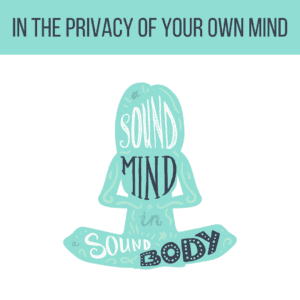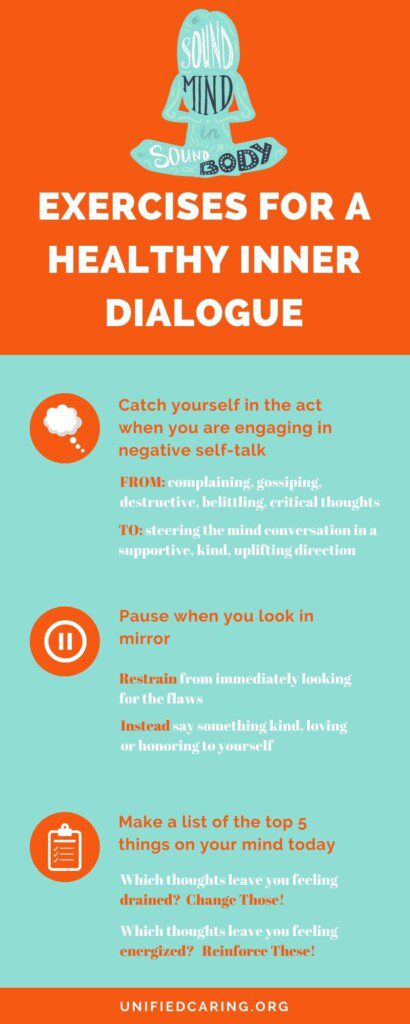When people consider what it means to live a healthy lifestyle, physical aspects such as diet and exercise are usually the first to be mentioned. Though these aspects are unquestionably essential, they fail to acknowledge the role that the mind plays in our overall health. So, how do you speak to yourself in the privacy of your own mind? We ask because it’s important to recognize that the body and mind are intricately connected and fundamental to our well-being.

Exercising Our Minds
While there exists plenty of emphasis to workout the body, there seems to be a lack of awareness around working out the mind. In the same way that we get to exercise and move our bodies to become stronger, we also get to exercise our minds in order to have supportive thoughts that lift us up rather than drag us down.
For too many, it’s become second nature to unknowingly perpetuate a self-destructive inner dialogue. Meaning that it’s ‘normal’ for people to talk down on themselves, call themselves names, or be hyper-critical of their own interactions and self-image. Just think of how often we look in the mirror and immediately begin scanning for flaws without a single kind thought to follow.
It’s rightfully said that the relationship we have with ourselves is the most significant relationship we will ever have in this lifetime. So why then do we have a tendency to feed habitual thought patterns that are simply not helpful or caring?
The Quality of Our Private Thoughts
In order for us to be serious about supporting our health, we have to begin getting serious about examining the quality of our thoughts. This is because the thoughts that pass through the mind, pass through the body in the form of biological responses. Clinical research continues to show us how thoughts directly affect our immune systems, chemical messengers, hormones, blood pressure, weight, and numerous relating functions.
Negative, positive, and neutral thoughts each trigger specific biochemical reactions in the body.
For example, stressed or worrisome thoughts trigger a surge in cortisol and adrenaline. These are stress hormones that essentially prepare the body for danger. This is helpful when one is in actual danger, yet detrimental if the danger is only living within the confines of the mind.
Of course it’s natural to have a combination of different types of thoughts–negative, positive, neutral– but it’s important to not linger too long on the negative spectrum if wishing to support the health of the whole body.
This all being said, thoughts and activities of the mind are not benign.
It’s Time for a Mind Check-Up

When was the last time you took a moment to check-in with the happenings of your mind? What narratives or stories are on repeat? Is your inner voice working in your favor, or not?
Asking ourselves these questions is useful because the thoughts that we have today are literally the building blocks of our tomorrow. Our most visited thoughts become embedded in our belief systems and what we believe will either limit or expand our life’s potential.
By creating awareness around how our inner dialogue is behaving, we can better monitor and steer the direction of our thoughts. That helps to exponentially improve the quality of our experience day to day.
by Melissa Aparicio, contributing author
We are all working our way through a changed world as a result of the coronavirus pandemic. We may no longer be quarantined or under stay-at-home orders, but everyone is stretched to adapt like never before. All of us are in this together. Now more than ever, caring is what we need most. Caring for our self. Caring for others around us in our communities. Life now demands caring, resilience and compassion like never before. This is a great opportunity to create the world we want for our future generations. We invite you to join us in creating a caring movement!
Would you like to read more about UCA caring resources and products? We have other blogs on Unified Caring Association and our products, caring in our communities, and caring the UCA way!

